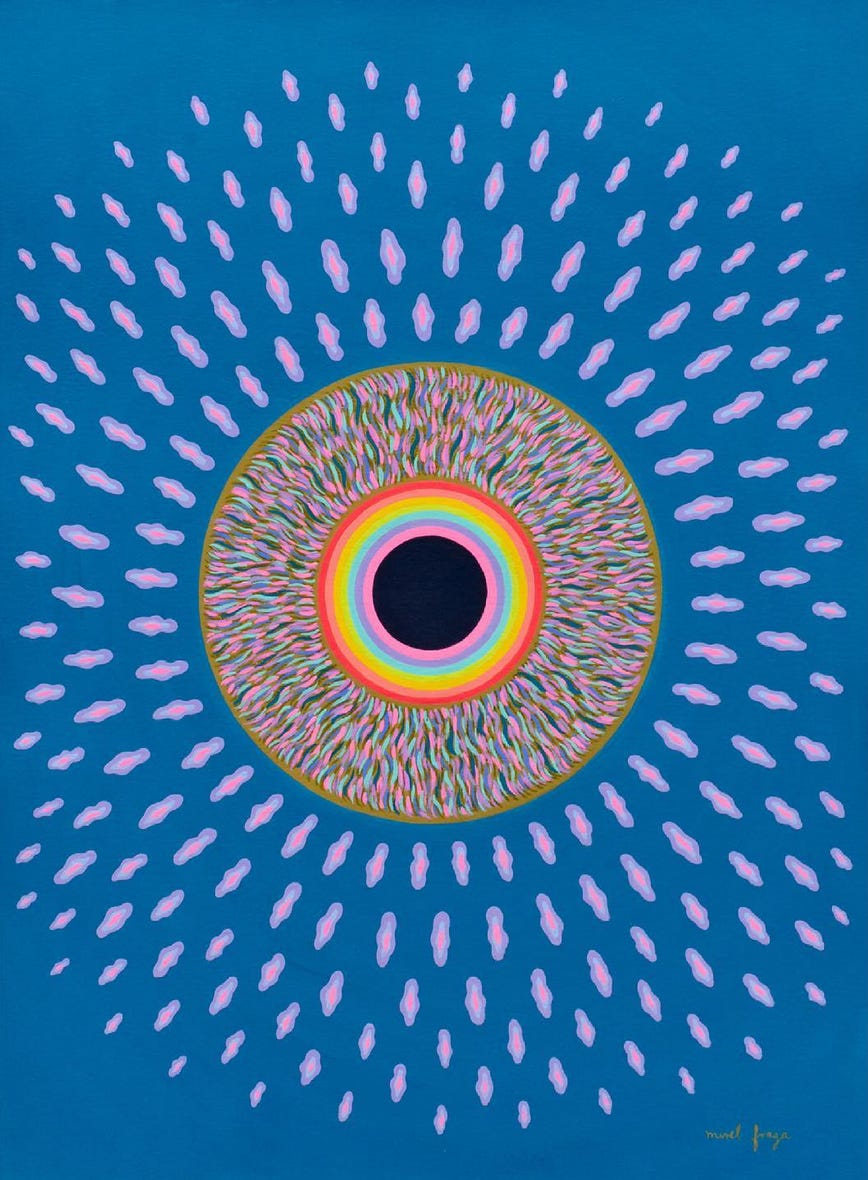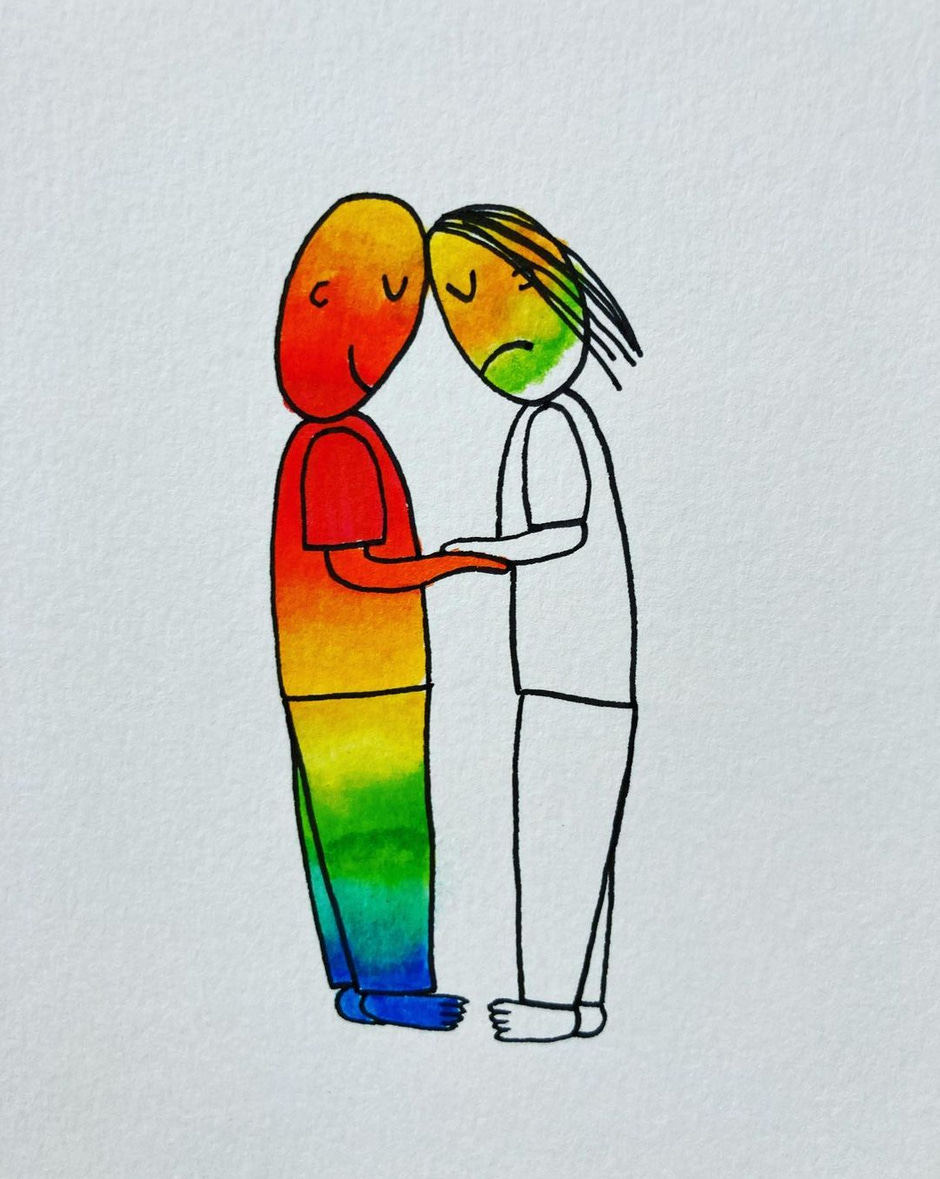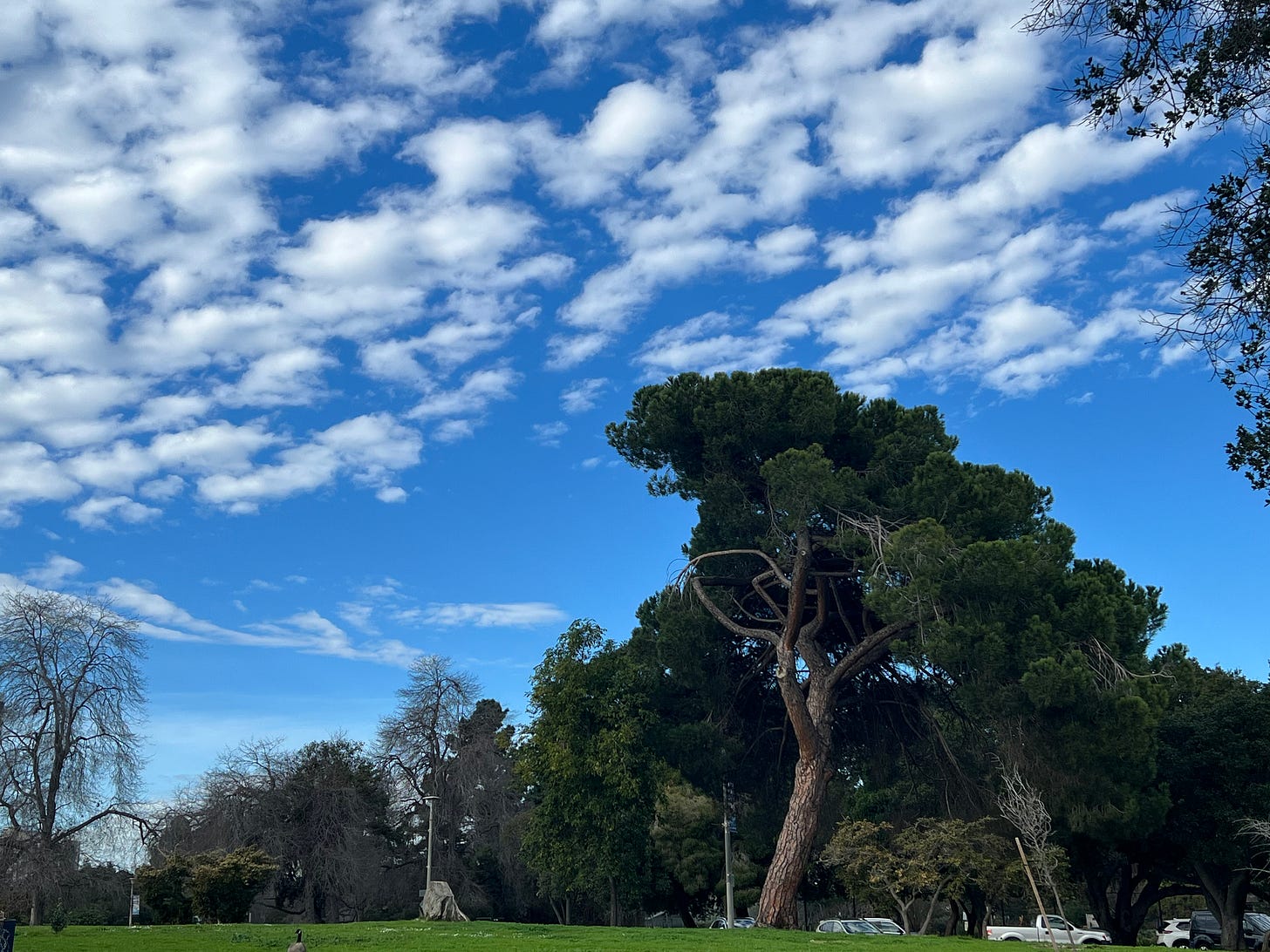Right now, collectively there's a sense that everything is broken. If you zoom out, like many times in history, it's probably not total Armageddon. We're collectively going through a massive transition, which means some things are dying to make space for the new. Right now, all we can do is get ready for the storm.
It’s in our instinct, especially for our bodies, to keep things stable internally; homeostasis is a matter of life and death. But when things seem chaotic, we have to find ways to adapt and maintain our balance. What kind of resources can we nourish ourselves with during those rough times?
From Self-Care to Ecosystem of Care
Self-care is super important for our internal stability. Beyond the fancy yoga retreat or the day at the spa, tending to our basic physiological needs is primordial. Life gets rough super fast if our nutrition, sleep, physical fitness, health, or psychological balance is missing. We all know that. Many people neglect some of these areas, hoping for the best. Keeping everything on track can be a lot of work.
How we are interconnected
In our Harder, Better, Faster, Stronger culture, self-care can quickly become a burden on ourselves. How can we juggle self-care with all the responsibilities at work, in our family, with our friends? Individualism forgets that the self is part of a wider web of life. The self-made man is a myth. Many of us have been so socialized to be so independent that we fail to see that our success relies on the actions of many others around us and many others before us.
"In the end, all things are connected. Everything we do, however small, can have a ripple effect across time and space." - Jane Goodall
When we intentionally decide how to connect to the larger picture, it takes some of the edge off life and gives us more fulfillment.
Say we have the whole self-care thing down. Being chill in our individualized emotional bunkers isn't going to be enough. Neuroscience tells us that our nervous systems talk to each other. We’ve all sensed it. If our friends, family, neighborhood, and world are miserable, we will likely become miserable. Whether we like it or not, we're all in it together.
How to be intentionally in the ecosystem of care
For many of us, seeking support is a challenge. In a way, it requires the humility to accept our limitations. After all, being social animals means that relying on others is necessary for the survival of our species.
When healthy and resourced, we can be more present to our friends, family, and community. We can offer our effort, focus, attention, time, money, etc. When we struggle to ask for help, life gets harder for us individually and for people who care about us. They see us suffering but don’t get a chance to show how much they care. When everyone is authentic, the line gets blurry between who gives and who receives. Everyone wins.
What gets in the way?
Sometimes, we feel stuck, and then we beat ourselves up for not handling everything alone. In my conversations, reviewing ways to get through tough times, I often end up asking this simple question: "How can you get support from other people?" There's often a silence revealing a strong belief that involving others isn’t an option.
To illustrate the wide variety of beliefs that can prevent you from doing what’s best for us, see below some Enneagram beliefs by personality type. Some of these beliefs might be surprising. The Enneagram is very helpful in understanding the world from other people's perspectives.
Regardless of the Enneagram type we identify with, we may resonate with more than one belief depending on the situation:
Only weak people ask for support. (type 8)
I don't want to be a burden on other people. (type 9)
It shows that I failed to do things perfectly. (type 1)
It’s my role to be the rock for others. I don't need help. (type 2)
Leaning on others makes me look bad to people I want to impress. (type 3)
People don’t understand my unique situation. I won't be seen (type 4)
People will be all up in my business, it’ll be exhausting, and I’ll lose my privacy. (type 5)
It confirms that I’m making poor choices (type 6)
I don't want to dwell on difficult emotions (type 7)
Ask yourself for each area of your life: How easily can I ask for support? Is there somebody I know I could check in with to see if they’re okay or need support?
Things commonly overlooked in self-care
Creating a network of care around us strengthens us, individually and collectively. How do you create it?
Intention & Curiosity
A good trick for improving our well-being is to notice what makes us feel alive in the long term and focus on that. It’s great when we can discern what makes us feel good in the moment, but not so much the next day, month, or decade. This requires an openness to learn something new, a quality of curiosity. We truly learn by experiencing what’s true and alive from moment to moment.
Being touched
Finding joy means embracing the micro, simple moments as much as the big ones. It means letting ourselves be touched, really feeling it, not just thinking or talking about it, feeling it in your heart, and bookmarking it. For me, to help me slow down, I pause and appreciate the moment. When I am with other people, I say what’s touching me. The cool thing about sharing is that it invites others to feel it with you and create small and big heart-warming memories together.
Media you surround yourself with
It’s important to pay attention to what kind of social media, movies, and TV shows we expose ourselves to, and how they make us feel. They influence our brain, emotions, physiology, and, consequently, our thoughts. Some of it is absorbed in our unconscious. When I’m super anxious, now might not be the best time to watch a serial murder TV show. I may not have the internal resources to stay balanced after that. When times are hard, we may intentionally add more positive media to the mix.
Spaciousness
How much spaciousness do we allow ourselves to have? These pauses can help us understand ourselves better and appreciate life more. It’s like how a silent pause in a song can cause anticipation and a deeper connection to the music. Making space for breaks and finding quiet moments for reflection can be challenging.
We can also socialize while maintaining some spaciousness. For example, I’ve seen people set up a one-hour online video call where they journal together. There are plenty of meditation groups. Some people ritualize putting all their phones away while spending time together.
Communities & social bonds
It’s quite enriching to proactively identify and nurture relationships and communities where people will support each other through good times and bad. Last year, the World Health Organization launched an initiative to tackle the epidemic of loneliness globally because having social bonds dramatically increases our likelihood of being healthy and living longer. For those in romantic partnerships with one person, having an ecosystem of care reduces the pressure on the single person to be the primary person for everything.
Some of us have access to collective spaces where we can be authentic and where growing is encouraged. Being intentional means choosing the people and groups that fully align with our values, not just on paper, but also in their actions. The right people for us will be excited to welcome you each time we see them.
We naturally tend to stay amongst people of the same age group. Learning from people of different ages is also quite enriching. Mentoring young people and spending time with older people we respect will offer new perspectives.
The side effect of being intentional: self-trust
These resources I’ve described are strategies to recharge our batteries with aliveness. When we include these strategies in our everyday, we know we’re being taken care of not just by what’s in the ecosystem. There’s a feeling of self-trust to know that we have some choice in how we decide to enrich our lives. That in itself can get you ready for the tough times.
If you’d like to learn how to build your ecosystem of care and other important life skills, join the next Wholesome Groups. It’s my group coaching offer, and the intention is to make learning more accessible to more people. Sign up for next week’s information session on April 10th.'
Inspirations
David Brooks Video - How to Know a Person: The Art of Seeing Others Deeply and Being Deeply Seen
Living Myth podcast Fear is the way through
Movie: The Sound of Metal is a heartfelt movie about getting through adversity
Documentary: The Painter & the Thief
Explorations
Play with us at my next events
The Wholesome Circle SF on April 9th
The Wholesome Circle Oakland on April 15th
Other Events
Respira & Architecture of the Breath: Shaping the Breath, Shaping the Mind in Berkeley on March 19th
Clarity and Creativity in Times of Mystery: An Imaginal Workshop in Berkeley on March 24th
Wisdom 2.0 in SF, April 24-26th
Let’s chat!
📣 I invite you to propose ideas for the next blog posts and leave questions in the comment section. 📣









